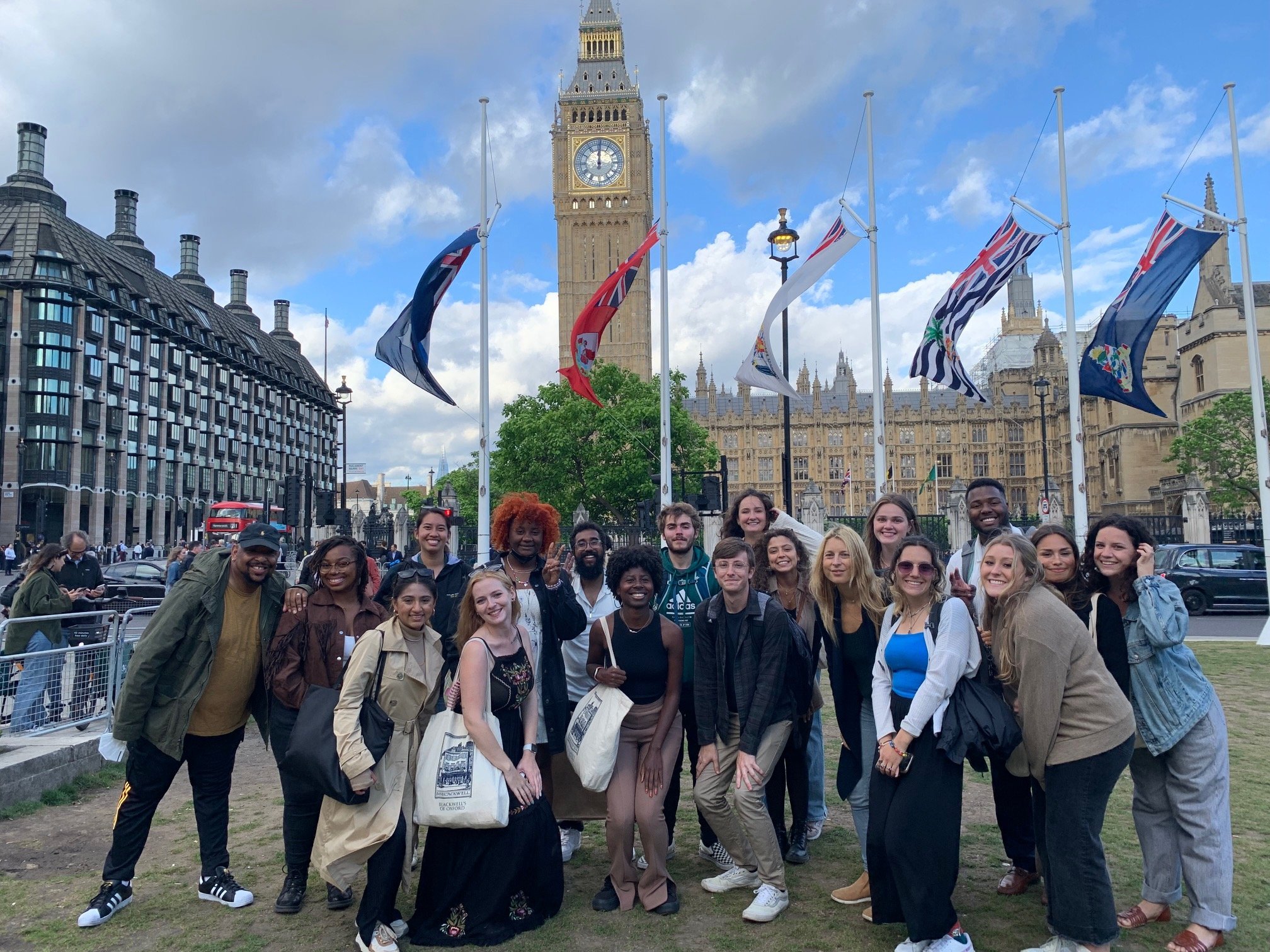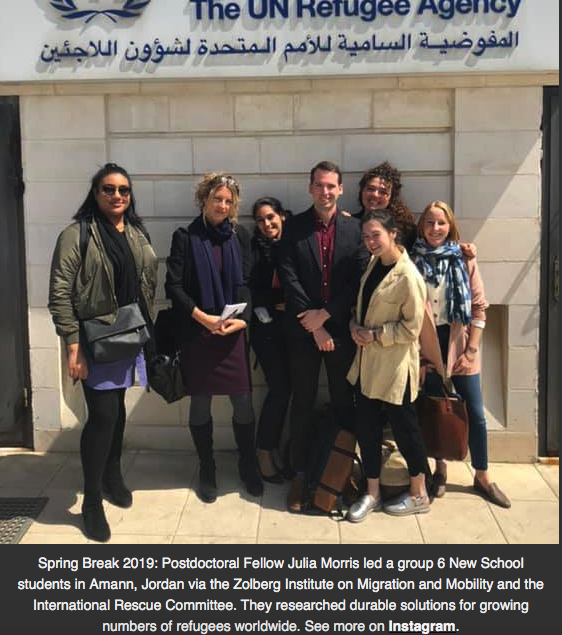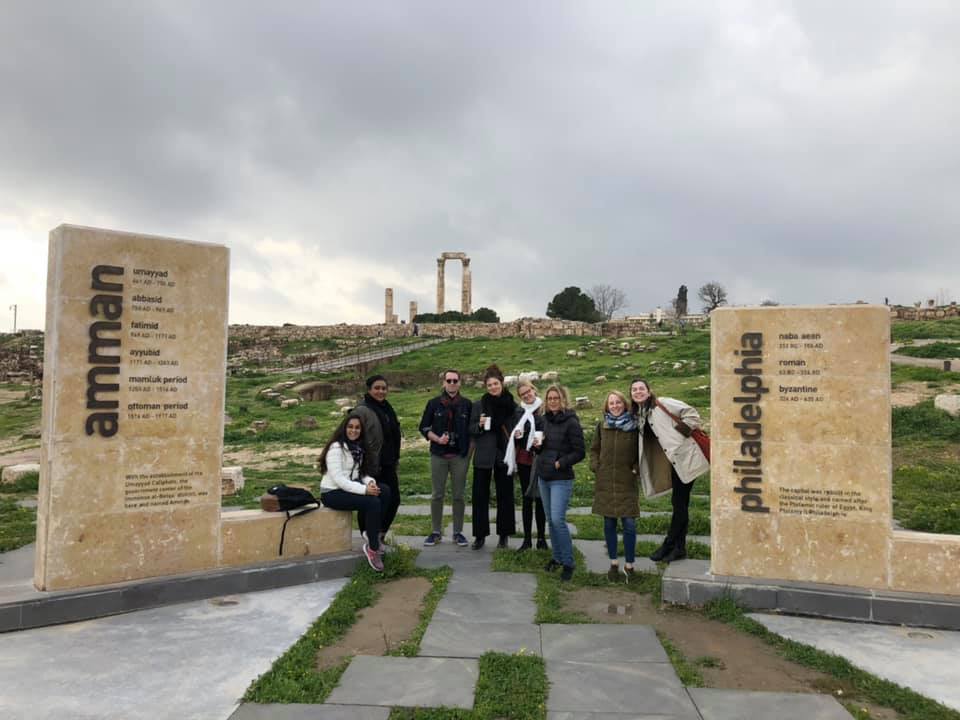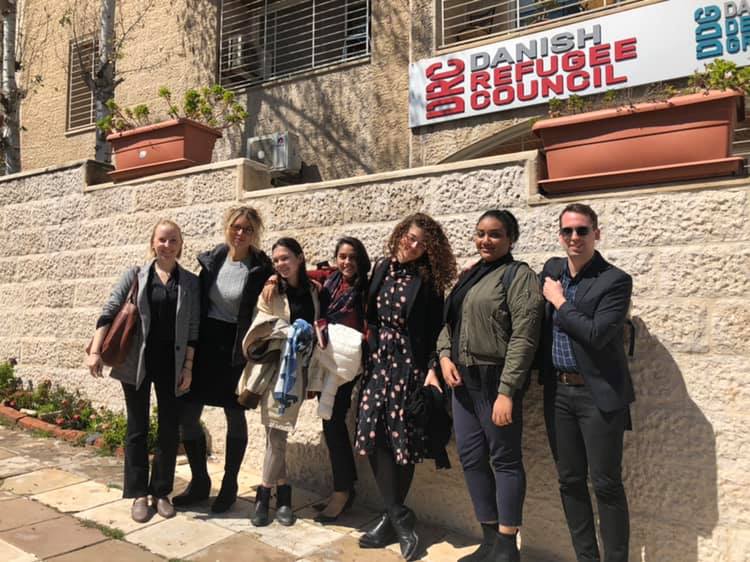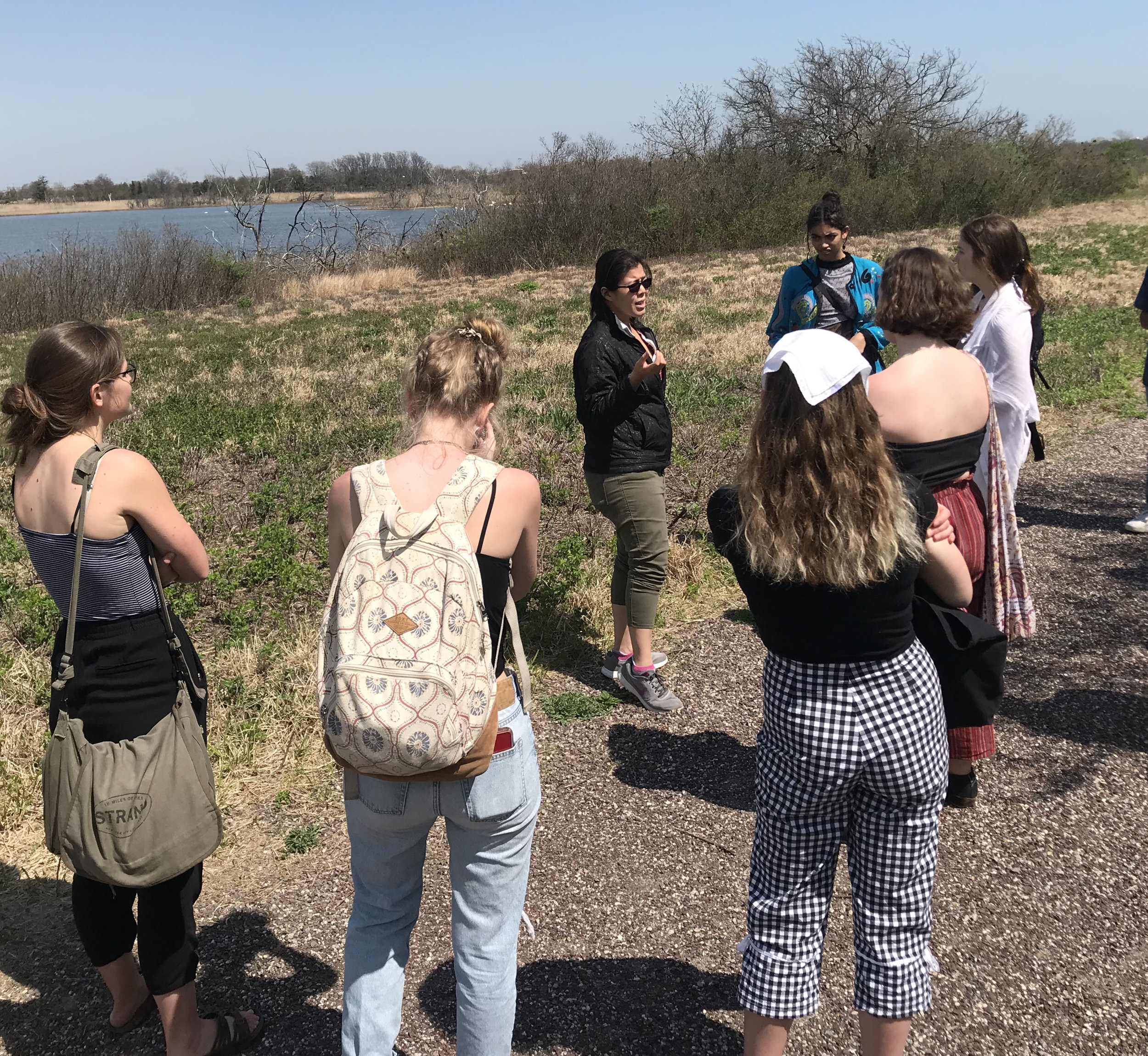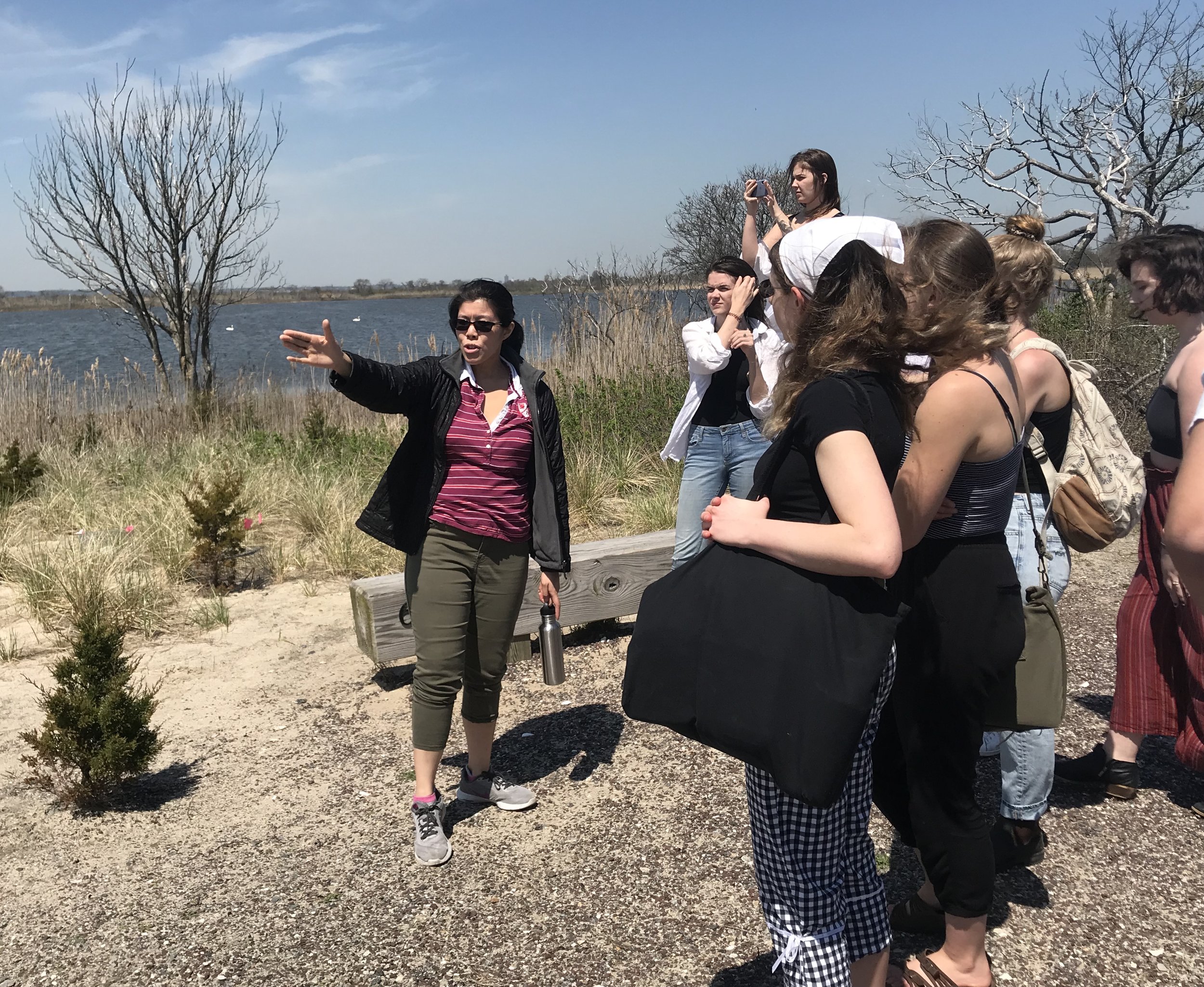As a teacher, my primary aim in engaging students is to transmit the relevance of the discipline beyond the classroom. By connecting theory to concrete examples, I teach students to learn how to think carefully about the world around them. Students merge everyday experiences with critical thinking, and are provided with the tools and knowledge they need to positively contribute to a diverse society.
At UNCW, I teach Forced Migration and Refugees (INT370 and HON120), Human Rights and its Critics (INT362), Environmental Extractivism and the Anthropocene (INT 320), Global Protest Movements (INT 316), Senior Capstone: Adventures in Humanitarianism (INT490), Migrant and Refugee Support Field Lab Internship (INT490), Introduction to International Studies (INT 105), and Interdisciplinary Research Methods (INT 300). I lead annual Migration and Social Justice study abroads including in May 2022 and 2023 to the University of Oxford, May 2024 to Cape Town with the University of the Western Cape, and May 2025 to Brisbane and Cairns.
In the past, I have taught my own courses at the University of California, Berkeley and The New School, including Migration and the Environment (undergraduate, spring 2019), Durable Solutions in Jordan: A Fieldwork Practicum (graduate, spring 2019), Boundaries and Belonging (graduate, fall 2018), Migration, Politics and Power (undergraduate, spring 2018), Introduction to Social and Cultural Anthropology (undergraduate, summer 2018), and Manufacturing Landscapes (graduate, spring 2018).
Alongside my teaching on forced migration and refugee concerns and global humanitarianism, I facilitate student internships with refugee support agencies and immigration attorneys in Wilmington. I also lead an annual Migration and Social Justice study abroad that focuses on past and present realities of racism, inequality, and empire through faculty, NGO, and activist workshops and immersive field study activities.
Selected courses are highlighted below, as are photos from student fieldwork projects by permission.
forced migration and refugees
Around the world, millions of people are forced to move from their homes by interlocking factors including armed conflict, persecution, natural disasters, development projects, and socio-economic deprivation. Given these patterns of forced migration and displacement, what can – and should – governments do to control or support migration in its many forms? This interdisciplinary course deals in depth with forced migration and the institutional response for resolving large-scale displacement, including the rights and responsibilities of different actors in the contemporary international refugee regime. Students will examine global and local responses to the challenges of forced migration, investigating the obstacles to providing effective support for displaced persons. By focusing on different aspects of migration – from economic, demographic, political, sociological, and anthropological approaches through to representations of migration in the media and creative arts – students will develop a comprehensive portrait of the challenges of forced migration. We depart critically from dominant representations of refugees as victims, exotic outsiders in need of rescue and salvation, problems, crises, and other colonial tropes, to reconsider the complexity of people’s individual circumstances amid deeper structural inequalities. We discuss how these trajectories can make visible processes and legacies of colonization, imperialism, war, displacement, state violence, and globalization. Ultimately, we formulate alternative possibilities for comprehending and addressing forced migration concerns.
Adventures in humanitarianism
What is humanitarian intervention? What are the responsibilities of those who intervene in crises around the globe? How are responses to crises planned and carried out? And what political considerations govern how humanitarian workers interact with those they seek to help? This course offers an exploration of these and other questions related to humanitarianism and humanitarian intervention. Students will explore the history of international relief, the logics of intervention in various crises, and key challenges and debates around issues such as sovereignty, neutrality, victimhood, and empowerment. Our main objectives are to obtain the theoretical tools (1) to think analytically about humanitarian responses to “crises” and suffering; (2) to analyze the culture of humanitarianism in ways similar to how one would analyze the culture of a specific geographic location. We will engage readings, films, and other forms of visual representation to acquire command of key terminologies and issues within international humanitarian action.
human rights & Its critics
Is human rights law imperialistic, bureaucratic, and elitist, as critics have charged? How have practitioners attempted to decolonize human rights? In the first part of the course, we will focus on the historical development of the rise of the rights regime. Who decides what human rights are? Do human rights matter? Are they enforceable? The second section moves to debates about the universality of rights. We consider how human rights are rooted in colonial and racialized systems of inequality. Who do rights include and exclude? How does the human rights discourse construct roles of victimhood and saviorhood? The third section focuses on the bureaucratization of rights, examining criminal tribunals and truth and reconciliation commissions, through to practices of quantifying violence. In the fourth part of the course we radicalize rights, bringing in feminist, queer, BIPOC, and multispecies perspectives to upend dominant Eurocentric cisgender humanist white supremacist frames. We will look at human rights ‘from below,’ reflecting on the global discourse of human rights and local forms of resistance. In the conclusion of the course, we return to the course’s guiding question: what are the possibilities and perils of human rights as an international regime? Throughout, conversations with human rights practitioners and activists ground our discussions.
durable solutions in jordan: a fieldwork practicum
Extreme numbers of people continue to be forced to move from their home regions; the majority hosted by states neighboring conflict areas. In these contexts, refugees are often unable to access work rights, reliant on camps and welfare programs. Globally, discourses remain centered on refugees as a social and economic drain or a security threat. This course brought together faculty from The New School and humanitarian partners at the International Rescue Committee to improve areas of thinking related to humanitarianism, design, technology and resettlement. Students critically examined humanitarianism from both a theoretical and hands-on perspective, leading up to a field placement in Amman during the Spring Break. In Amman, students conducted in-depth research related to their skill-sets, supporting innovations in interventions to aid refugees and displaced people. Students also had the opportunity to apply for a long-term summer internship with the IRC’s Amman office, which provides key training for future work in NGO, policy or academic disciplines.
